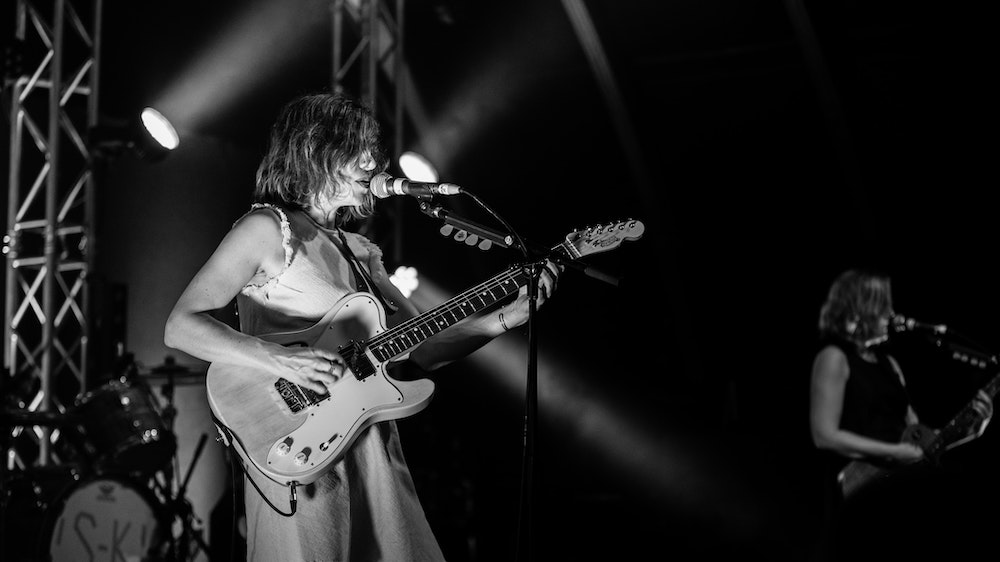
Long gone are the days when they consistently topped the charts: only ten years ago, the likes of Franz Ferdinand, The Strokes, The Libertines and Kaiser Chiefs took centre stage, with anthems such as Take Me Out, Last Night and When The Sun Goes Down providing the soundtrack for dance floors across the country. Only a few years have passed, but the situation now is very different. Currently, David Guetta, Emile Sande and Avicii reign supreme, heralding the chart domination of EDM and progressive pop.
NME, always one to wear its heart on its sleeve, has taken this ‘issue’ particularly to heart. Over the last three years, it has placed a considerable emphasis on bands and issues dead-and-gone for a magazine titled New Musical Express; The Libertines, Nirvana, Liam Gallagher’s mouth, to name a but few, seem to unfailingly fill its pages... Not stopping there, band after band are heralded as the ‘protectors of rock and roll’, ‘the next-Libertines’ or ‘the saviours of indie’.
First it was Brother, a self-proclaimed ‘Britpop revival’ group who lived and, eventually died, by NME’s double-edged sword. Then it was The Vaccines, who in fairness to them, have produced two good albums and achieved much critical and popular acclaim, but lack the rock-and-roll panache that NME so vehemently desire. Most recently, their pet project has been London-boys Palma Violets. The Violets especially have received NME’s patronage, possibly because they are characterised by an enigmatic front-duo, enact magnificently shambolic performances and started out playing guerrilla gigs in a romanticised London squat. Sound familiar Pete Doherty?
Now, as a like-minded guitarist, I’m always glad to see guitar-based bands doing well for themselves. But I do not share NME’s concern about the future of these genres or their misery that they don’t frequently top the charts. In fact, I believe that the demotion of the guitar-rock majority to a subversive-chart status has, and will in the long run, benefit the genre as a whole.
No longer is there pressure on guitar-wielders to conform to industry expectations or bow to big-label pressures. All you have to do is look at the host of indie landfill emerging in the last years of the 2000’s. Bands such as The Courteener’s and The Enemy were able to peddle unadventurous and commercially minded material under the relative protection of the ‘indie’ umbrella.
I’d argue that this in turn has allowed more experimental guitar bands to flourish without floundering in the shadows of their chart-topping counterparts. Can you imagine Wild Beasts, Django Django, Alt-J and Peace finding such a wide platform for their wares in the wake of monolithically brilliant indie debuts such as Is This It?, Up the Bracket and Whatever People Say I Am, That’s What I’m Not?
More so, it has been delivered out of the hands of fashion-conscious scene-hoppers and into those of consistent enthusiasts. Whilst UK Bass, 90s garage and experimental hip-hop now provide an ‘edgy’ haven for capricious hipsters, ‘indie’ music is increasingly free of their influence, which, if anything, gives the genre an element of stability and creative self-determination.
NME readers, for these reasons, do not lament the current role of ‘indie’ or ‘alternative’ music in the UK music industry. Instead, revel in the exciting and innovative music that is being produced by the likes of new-comers Peace, Deap Vally, Swim Deep, Drenge and the great music still being produced by industry veterans such as The Cribs, My Bloody Valentine, Dinosaur Jr., Billy Bragg... (the list could go on and on). Guitar music is far from dead and is perhaps in a better position than it was only five years ago.
Written by Adam Sumnall
Student at the University of Exeter and resident Smiths enthusiast.
